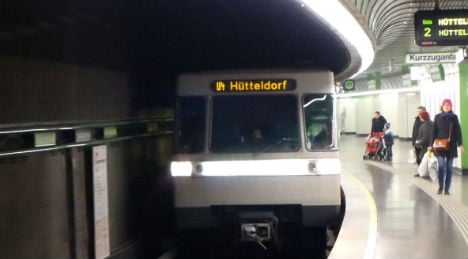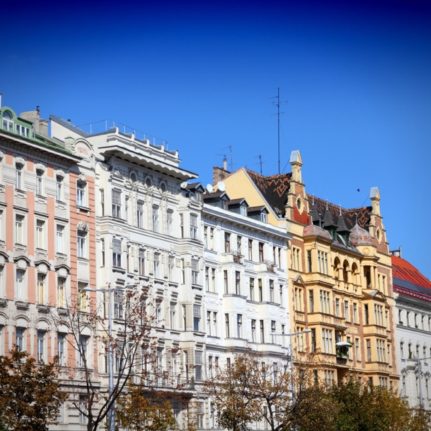Do buy a ticket
Vienna’s U-Bahn network doesn’t have ticket barriers and whilst it may be tempting to try and get away without buying a ticket (a practise known as Schwarzfahren) we don’t recommend it. If you're caught by the plain clothes ticket controllers (you might hear them before you see them – “Fahrscheine Bitte!”) you will have to pay a fine of €103 and will be asked to hand over your details if you don’t have the cash. If you refuse, they will call the police.
Tickets are also valid on buses, trams and S-Bahn overground trains. Remember to validate single journey and carnet tickets before use by pushing them into one of the blue ticket-stamping boxes at U-Bahn stations or on buses and trams (if you forget and you’re caught you will face a fine – the “I'm not from here” excuse doesn't get you very far).
If you’re visiting for a weekend consider the 72-hour Vienna Card (€16.50), which gives free travel on all public transport as well as various reductions to museums and galleries. For longer stays, the monthly ticket (€48.20) or yearly ticket (only €365!) offer great value. Most tickets can be bought online and printed in advance – or purchased at U-Bahn stations and on trams, buses, or in Trafik (tobacco kiosks).
Muzzle your dog, and buy it a ticket too

Photo: happybeagle.com
Dogs are allowed in the U-Bahn, and if you have a yearly travel card they travel for free. If not, you need to buy them a ticket. Small dogs who can be carried in a dog carrier don’t need a ticket. Dogs who aren’t in a carrier must wear a muzzle and be on the lead – otherwise you face a fine if caught.
Don’t drink and ride
Drinking alcohol on public transport is forbidden. And although there are snack food stands at many U-Bahn stations it’s rather taboo to eat on the underground itself – especially if it’s something hot and smelly like a kebab or Käsekrainer sausage.
Don’t put your feet on the seat in front of you
This is an unwritten rule for all trains in Austria. If caught with your feet up by ticket inspectors you can expect a telling off and possibly even a fine for “Verschmutzung” (dirtying the seat).
Don’t smoke e-cigarettes or ride a scooter
The Wiener Linien recently announced some new house rules – which ban e-cigarettes on trains and platforms. Using scooters, skateboards and in-line skates to whizz down train platforms and underground walkways is also a no-no.

Do offer your seat to those who need it more. Photo: happybeagle.com
Don’t expect other passengers to let you on or off
Commuters and tourists tend to gather in a disorderly bunch and barge their way onto a train carriage, without the courtesy of letting the current occupants escape first. Do make a push for the doors the moment the train enters the station, and a loud “Entschuldigen Sie, bitte!” will hopefully secure you a gap through which to exit.
Don’t make small talk with other travellers
Making small talk with strangers tends to be considered strange rather than polite in Austria’s capital. Even making eye contact and smiling tends to be frowned upon (although strangely, blatant staring seems to be perfectly acceptable).
That said, there are a few known eccentrics who frequent Vienna’s U-Bahn network – including a youngish man known as the “Bier-Kavalier”, who travels the length of the U4 and U6 lines asking women to join him for a beer. Few women have been known to accept his offer, and a firm ‘Nein’ seems to suffice to send him on his way. The U-Bahn just isn’t a good place for flirting. Most respectable Viennese wouldn’t dare ask someone out in broad daylight, let alone on a public train. If you want to get up close and personal, try a bar after midnight and a few shots of Schnapps instead.



 Please whitelist us to continue reading.
Please whitelist us to continue reading.
Member comments